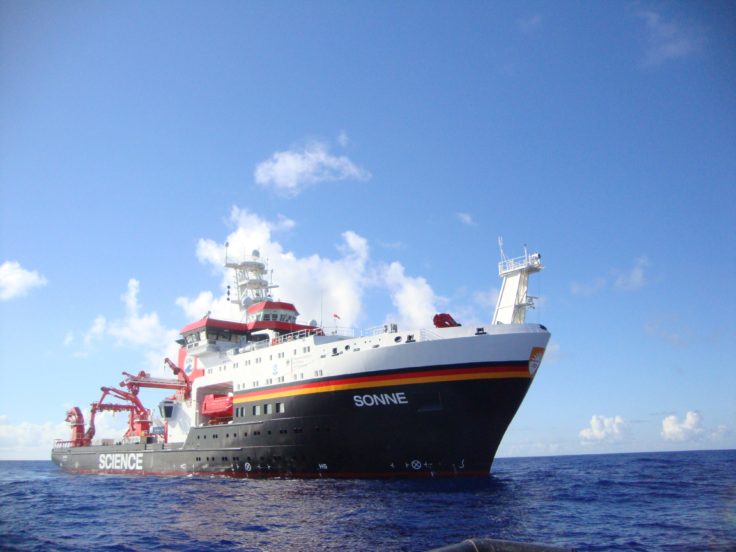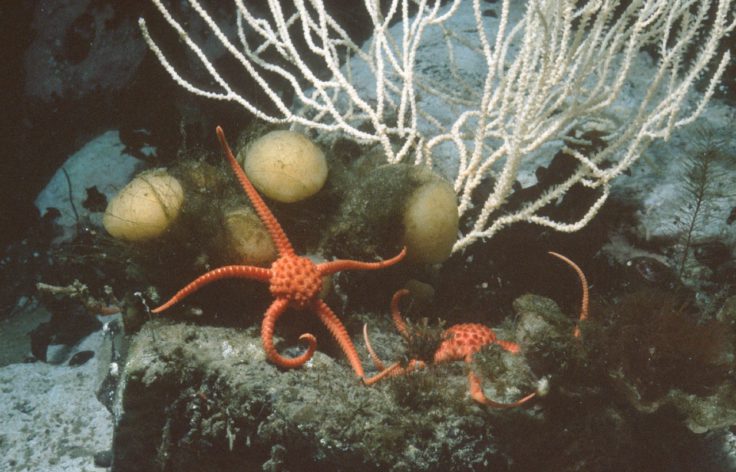A British Antarctic Survey (BAS) scientist departs Germany today (8 January 2021) onboard the research vessel SONNE to study the diversity of marine organisms in the Atlantic deep sea.
Dr Katrin Linse, and a team of 20 researchers, intend to collect samples from the seabed in the Iceland Basin to the Azores at depths between 4,000 and 5,000 metres. The team will map the ocean floor using hydroacoustics. The team hopes that the IceDivA expedition will contribute to a better understanding of the deep-sea biome, ultimately leading to more efficient conservation measures.
The primary focus of the expedition on the research vessel SONNE is to study the distribution of deep-sea species. In this context, IceDivA can build on the findings of several preceding projects. The integration of data from previous expeditions forms a central component of the IceDivA expedition.

BAS scientist Dr Katrin Linse, a biodiversity biologist, joins the expedition. She says:
“To date, the deep-sea ecosystem has been studied less extensively than the far side of the moon. I am excited about the diversity of marine animals, from snails and brittlestars, amphipods and isopods, that we will find, expecting some known species but also new, yet undescribed and undiscovered animals. Our team goal is to analyse the communities and diversity of the deep-sea animals from the north of Iceland to the southernmost Weddell Sea and this expedition is filling the gap in our dataset.
“After nine months of home working, I am also really excited to be back in marine biology labs and participating in fieldwork.”
Alongside biological studies and the use of a epibenthic sledge to collect samples, the “DArgo2025_RBRpilot” project will also be on board. A total of 10 ARGO floats by different manufacturers will be equipped with sensors for measuring the salinity, temperature and pressure (CTD) to compare their respective performance. Breaking with the traditional approach, on this expedition the floats will be released as a swarm in a single position, if possible, to obtain an initial direct comparison of the measuring parameters. Concurrently, the water column in the release area will be examined at a fine scale with onboard CTD sensors. These measurements serve as a reference for assessing the ARGO float data. During the course of the expedition on the research vessel SONNE, after their successful release, the floats will repeatedly dive to depths of 2,000 metres and return to the surface 48 hours later to transmit the collected data via satellite to a data centre.

Led by the team from Senckenberg am Meer, the IceDivA expedition is a collaboration involving 21 scientists from the following institutions: Federal Maritime and Hydrographic Agency (BSH), British Antarctic Survey (BAS), GEOMAR, and the Universities of Hamburg and Oldenburg.
In order for the expedition to go ahead under the current Covid-19 restrictions, all participants had a 14-day domestic self-quarantine over Christmas and New Year and were tested twice. The expedition departs Emden in northwest Germany on 8 January 2021 and will return after five weeks at sea.
IceDivA in full is IceAGE (Icelandic marine Animals: Genetics and Ecology) and DIVA (Latitudinal Gradients in BioDIVersity in the deep Atlantic).
The IceDivA expedition blog is now live: https://www.iatlantic.eu/our-work/expeditions/icediva/
Weekly updates are published here (SO280-GPF 20-3-087H): https://www.ldf.uni-hamburg.de/en/sonne/wochenberichte.html
